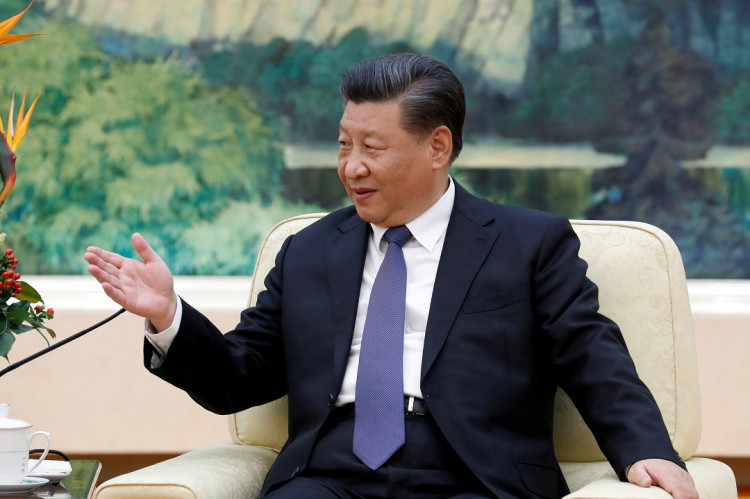Chinese President Xi Jinping held a rare meeting with former Taiwan President Ma Ying-jeou in Beijing on Wednesday, emphasizing that outside interference cannot stop the "family reunion" between the two sides of the Taiwan Strait. The highly unusual meeting, which took place just weeks before Taiwan swears in a new leader openly loathed by Beijing, is steeped in political symbolism and highlights the widening political divide across the Taiwan Strait.
During the meeting, held at the Great Hall of the People, Xi praised Ma for opposing "Taiwan independence," promoting cross-strait exchanges, and agreeing that both sides of the strait belong to "one China." Xi stated, "Compatriots on both sides of the Taiwan Strait are all Chinese people. There is no grudge that cannot be resolved, no issue that cannot be discussed, and no force that can separate us. External interference cannot stop the historic trend of the reunion of the family and the country."
Ma, who remains a senior member of Taiwan's main opposition party, the Kuomintang (KMT), responded by saying that although the two sides of the strait developed under different systems, the people both belong to the Chinese nation. He cautioned, "If a war breaks out between the two sides of the Taiwan Strait, it will be an unbearable burden for the Chinese nation. I sincerely hope that both sides respect the values and way of life treasured by the people and maintain peace across the strait."
Washington has an aneurysm:
Xi meets with former Taiwanese president Ma Ying-Jeou. pic.twitter.com/NH1BTt24GG — The Sirius Report (@thesiriusreport) April 10, 2024
However, the appeal of a shared Chinese identity has waned considerably in Taiwan as Xi ramps up military, economic, and diplomatic pressure on the democratic island. This trend was underscored in January when Taiwanese voters elected Lai Ching-te, who has long faced Beijing's wrath for championing Taiwan's sovereignty, as the island's next president.
Beijing's pressure tactics are intended to nudge Taiwan's incoming Lai administration toward a more accommodating political stance toward China. China has cut off high-level official contacts with Taipei since President Tsai Ing-wen from the Democratic Progressive Party (DPP) took office in 2016. Unlike the KMT, the DPP rejects Beijing's precondition for official talks - an agreement under which both sides accept there is "one China," with their own interpretations of what that means.
Ma's meeting with Xi coincides with a frenetic week of diplomatic activity in Washington, where President Joe Biden will host the first-ever leaders' summit between the US, Japan, and the Philippines. Joint concerns over China's increasing assertiveness under Xi, including toward Taiwan, are a key driver of that summit.
Reactions to the meeting in Taiwan have been mixed. The DPP is likely to downplay the significance of Ma's visit, while the KMT may be hesitant to flaunt the meeting in the face of the Taiwanese electorate, which remains wary of closer cross-strait ties. Experts believe the meeting is unlikely to result in any substantial change to the status quo in cross-strait relations, with its value primarily lying in its symbolism.
Ma, who is traveling in a personal capacity, called his trip a "journey of peace and friendship." However, his emphasis on a shared Chinese identity is increasingly out of tune with mainstream sentiment in Taiwan, where less than 3% of the population now identify primarily as Chinese, and under 10% support an immediate or eventual unification.
The meeting between Xi and Ma serves as a message to the Chinese public that unification with Taiwan is still possible, despite the DPP's historic election victory. It also signals to Taiwan and others that peaceful unification through winning over hearts and minds remains Beijing's preferred option, at least for now, despite festering cross-strait tensions.






